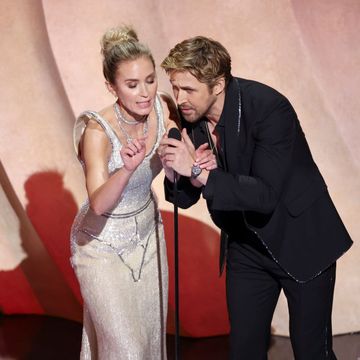8th December 2017: Taylor Swift's Assaulter Says The Trial Was Nothing More Than 'Publicity Stunt'
DJ David Mueller who was sued for a symbolic $1 for sexual assault and battery of Taylor Swift.
Swift was named as one of TIME's 'Silence Breakers', who were Person of the Year. In her artile she revealed that Canadian Mueller was yet to hand over the settlement, despite it being court ordered.
Yesterday, it was reported that the DJ had finally given Swift the money, though, not without one final insult. He reportedly paid the money on 28th November (presumably prior to Swift's interview with TIME magazine) in the form of a Sacagawea coin.
The Associated Press claim that this payment method was meant as a final jab against the singer, since the Sacagawea dollar features a prominent female Native American.
He told them, 'I mean if this is all about women's rights. … It's a little poke at them, a little bit,' he concluded, 'I mean, I think they made this into a publicity stunt, and this is my life.'
6th December 2017: Taylor Swift On Her Sexual Assault Case And The Aftermath
Taylor Swift was named this morning as one of the Time's Silence Breakers, the magazine's Person of the Year, for her public sexual assault case this summer. Colorado radio DJ David Mueller sued Swift for $3 million in damages because he was fired from his radio cohost job in 2013 after she claimed he lifted her skirt and grabbed her butt while they posed for a photo at a meet-and-greet during her Denver Red Tour concert. Swift filed a countersuit a month later for sexual assault and battery and sought just $1. She won that suit.
But Mueller never paid Swift, the singer told Time in her first interview since the trial and the release of her new album Reputation. "When the jury found in my favor, the man who sexually assaulted me was court-ordered to give me a symbolic $1," she said. "To this day he has not paid me that dollar, and I think that act of defiance is symbolic in itself."
Swift's candid, blunt testimony was applauded in news coverage of the case. But her choice of wording stemmed from anger and her refusal to just be polite after what happened to her and those around her. As she explained:
When I testified, I had already been in court all week and had to watch this man's attorney bully, badger and harass my team including my mother over inane details and ridiculous minutiae, accusing them, and me, of lying. My mom was so upset after her cross-examination, she was physically too ill to come to court the day I was on the stand. I was angry. In that moment, I decided to forego any courtroom formalities and just answer the questions the way it happened. This man hadn't considered any formalities when he assaulted me, and his lawyer didn't hold back on my mom—why should I be polite? I'm told it was the most amount of times the word "ass" has ever been said in Colorado Federal Court.
Swift's advice to victims is to not take the blame. 'You might be made to feel like you're overreacting, because society has made this stuff seem so casual,' she said. 'My advice is that you not blame yourself and do not accept the blame others will try to place on you. You should not be blamed for waiting 15 minutes or 15 days or 15 years to report sexual assault or harassment, or for the outcome of what happens to a person after he or she makes the choice to sexually harass or assault you.'
This moment where so many people are coming out about their experiences 'is important for awareness, for how parents are talking to their children, and how victims are processing their trauma, whether it be new or old,' Swift said. 'The brave women and men who have come forward this year have all moved the needle in terms of letting people know that this abuse of power shouldn't be tolerated. Going to court to confront this type of behaviour is a lonely and draining experience, even when you win, even when you have the financial ability to defend yourself. Even though awareness is higher than ever about workplace sexual harassment, there are still so many people who feel victimised, afraid and silenced by their abusers and circumstances.'














